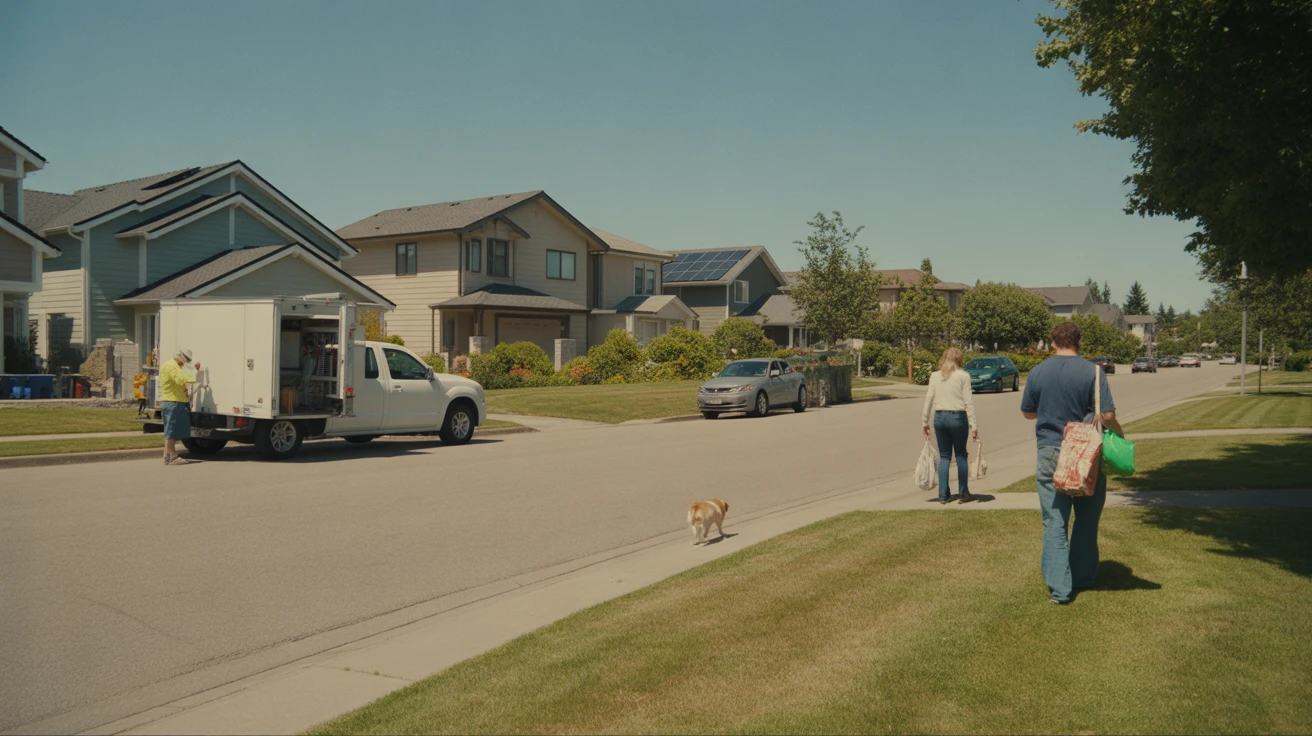
Understanding Utilities in Bellevue
Here’s what typical utility costs look like in Bellevue. For most households, monthly utilities include electricity, water, trash collection, natural gas, and recycling. The average household spends $200–$300 per month on utilities in Bellevue, but this can vary significantly based on home size, season, and usage habits.
Utility costs are an important part of budgeting for life in Bellevue. While some rentals include certain utilities like water and trash in the monthly rent, most residents are responsible for setting up and paying their own utility accounts. Homeowners should plan for the full range of utilities when estimating monthly housing costs in Bellevue.
Table: Monthly Utility Estimates
Wondering how much your monthly bills might run? Here’s a quick breakdown for a typical home in Bellevue:
| Utility | Estimated Monthly Cost |
|---|---|
| Electricity | $80–$150 |
| Water | $40–$80 |
| Natural Gas | $30–$60 |
| Trash & Recycling | $25–$50 |
| Total | $175–$340 |
Estimates reflect a mid-size household in a single-family home. Your actual costs may be higher or lower.
Keep in mind that these figures don’t include extras like internet and streaming costs in Bellevue, which can add another $50–$150 to your monthly bills depending on your plan and provider. There may also be some unexpected fees when moving to Bellevue, like utility deposits or connection charges.
How Weather Impacts Utilities in Bellevue
Seasonal weather patterns have a big effect on utility costs in Bellevue, especially for electricity. While the Pacific Northwest is known for its mild climate, Bellevue still experiences chilly, damp winters and warm, dry summers that impact heating and cooling needs.
In the winter months, natural gas usage rises as households crank up the heat to stay comfortable. Expect to see higher gas bills from November through February. Electric costs also tick up due to increased lighting needs and the use of space heaters.
Summer brings its own utility challenges. Many Bellevue households see electric bills 30–50% higher in peak summer compared to spring. Air conditioning is the main culprit, as even a few weeks of hot weather can cause cooling costs to spike. The arid summer conditions also mean higher irrigation needs, which can boost water bills for those with lawns or gardens.
How to Save on Utilities in Bellevue
Looking for ways to keep utility costs under control? Here are a few tips:
- See if your electric provider offers off-peak billing programs that lower rates during less busy times
- Take advantage of solar panel incentives to generate some of your own clean energy
- Install a smart thermostat to optimize your heating and cooling schedule
- Plant shade trees near your home to provide natural cooling in the summer
- Upgrade to energy-efficient appliances when it’s time to replace older models
🏆 Tip: Check if your utility provider offers rebates for energy-efficient AC units. You may be able to save on upfront costs while lowering your long-term bills.
FAQs About Utility Costs in Bellevue
What is the average electric bill in Bellevue during summer?
Expect to pay $120–$180 per month for electricity in June, July and August. Costs may be even higher during a heatwave.
Do HOAs cover any utilities?
It depends on the community. Some HOAs include water, trash, and sewer in the monthly dues, while others leave utilities up to individual homeowners. Always check before buying.
Is water more expensive in Bellevue than nearby cities?
Water costs in Bellevue are fairly typical for the Seattle metro area. Prices are a bit higher than the national average but on par with most surrounding communities.
Smarter Utility Planning in Bellevue
For most Bellevue residents, utilities are a significant part of the monthly budget. Electricity, water, and natural gas costs all tend to be higher than the U.S. average, largely due to the Pacific Northwest’s unique climate and weather patterns.
By understanding the major cost drivers, like seasonal heating and cooling spikes, you can better predict your utility expenses and plan accordingly. Proactive steps like improving your home’s energy efficiency, monitoring usage trends, and taking advantage of off-peak discounts can help keep costs manageable over time.
With a little research and preparation, you can confidently navigate utility costs in Bellevue and keep your household running smoothly in any season.
